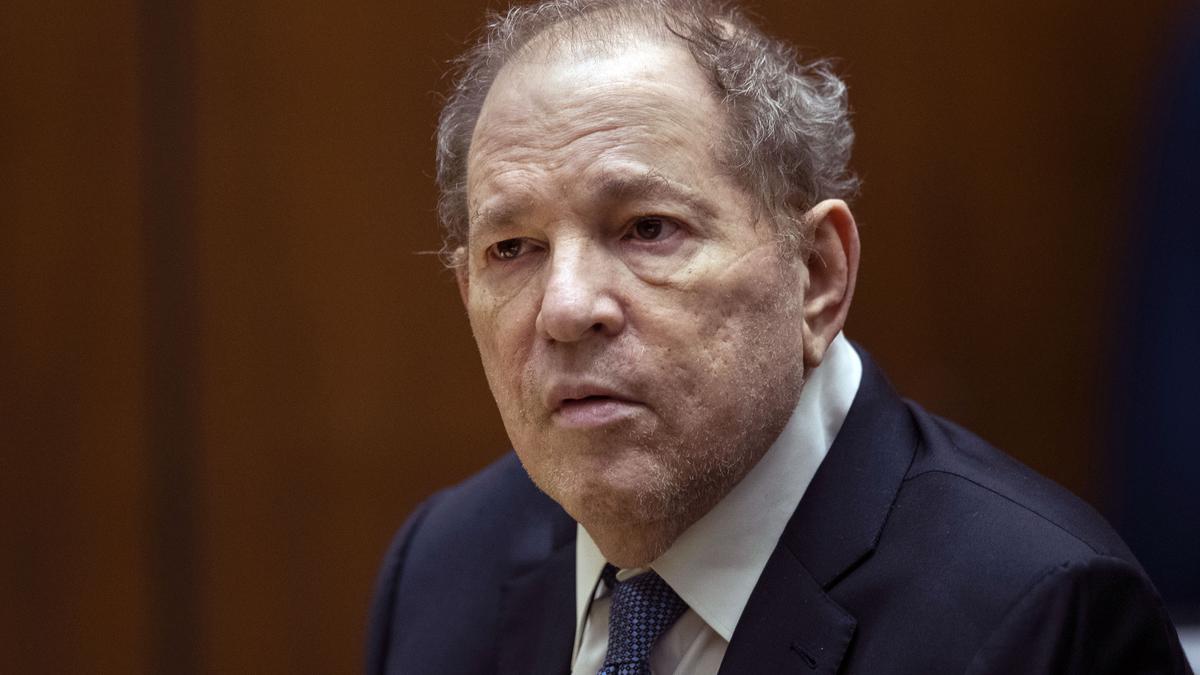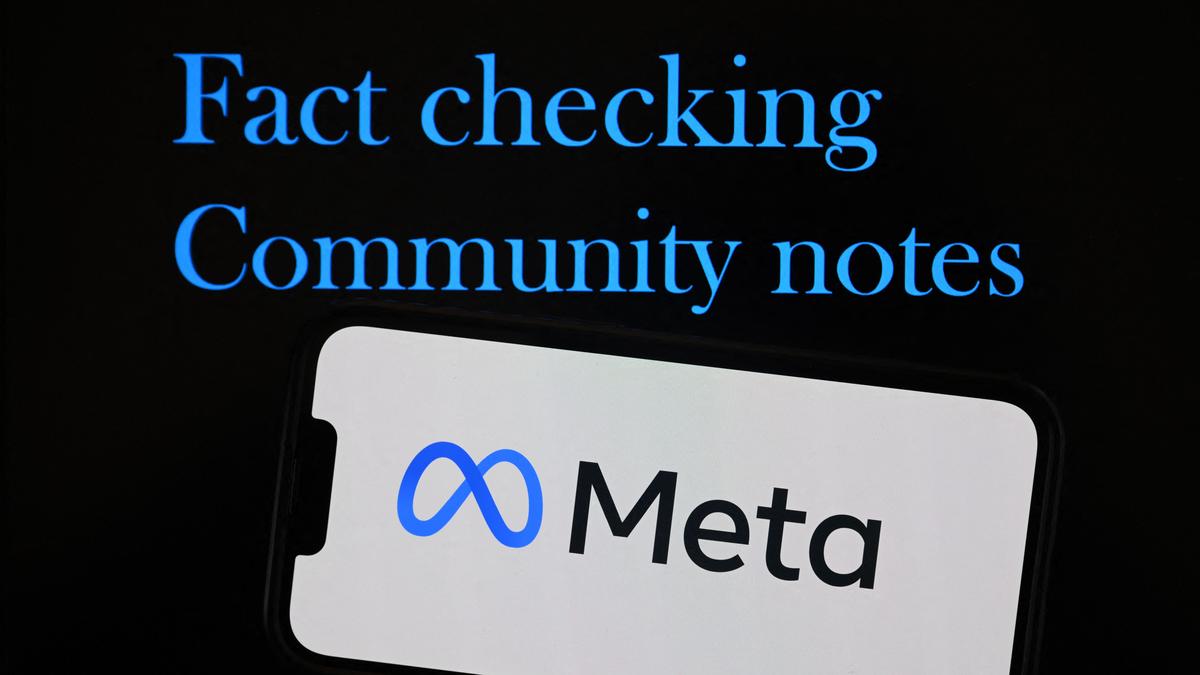In a 4-to-3 decision on April 25, New York’s highest court overturned former Hollywood producer Harvey Weinstein’s 2020 rape conviction — a landmark case in the #MeToo movement. The New York Court of Appeals observed that Justice James Burke, the trial judge who presided over the sex crimes case in Manhattan, had made a crucial error by letting several women testify against the ex-movie mogul about allegations that were not included as charges in the case record.
“We conclude that the trial court erroneously admitted testimony of uncharged, alleged prior sexual acts against persons other than the complainants of the underlying crimes,” the Court said. It underscored that the remedy for “these egregious errors is a new trial.”
Weinstein will however still remain imprisoned owing to his conviction by a California jury in 2022 for raping a woman in a Beverly Hills hotel. He was to serve his 16-year sentence after his New York sentence.
On April 28, he was hospitalised upon his return to New York to undergo several medical tests. “The NYC Department of Corrections determined that Weinstein needed immediate medical attention,” his lawyer Arthur L Aidala told the U.S. media in a statement.
Allegations and the trial’s history
In October 2017, The New York Times published an investigative piece detailing Weinstein’s history of sexually harassing women stretching over nearly three decades — many of whom were younger employees trying to make it in the television and film industry where he was a force to reckon with. This led hundreds of others to open up about their own experiences eventually culminating in what became known as the #MeToo movement, a worldwide repudiation of sexual misconduct by powerful men.
Weinstein was eventually indicted by Manhattan prosecutors in May 2018 and charged with sex crimes. His trial began in January 2020 mainly on the allegations of two women — Miriam Haley, who said that Weinstein forcibly performed oral sex on her in 2006, and Jessica Mann, who said he raped her in 2013. On February 18, 2020, he was convicted of a first-degree criminal sexual act and third-degree rape and sentenced to 23 years in prison by a New York court. In June 2022, a New York appeals court unanimously upheld the 2020 conviction affirming the use of additional victims’ voices to prosecute sex crimes.
The majority verdict
Four years after Weinstein’s conviction, the Court of Appeals said that the prosecutors along with Justice Burke had violated a cardinal tenet of criminal law i.e. defendants should only be tried on the charges against them. The Court of Appeals is New York’s highest court and gets the final say on cases before a review is sought before the U.S. Supreme Court. The controversial ruling was handed down by chief judge, Rowan Wilson, and six associate judges.
Central to last week’s decision was the presence of the “Molineux witnesses” also known as “prior bad act” witnesses. It refers to trial witnesses who are allowed to testify about criminal acts that the defendant has not been formally charged with. In a bid to persuade jurors that Weinstein had a long history of using his power to lure young women and sexually assault them, prosecutors called several women to the stand. However, the disgraced former Hollywood producer was not charged with assaulting those women.
In writing for the majority, Judge Jenny Rivera said that permitting such testimony had resulted in diminishing the “defendant’s character before the jury”. Such an error was compounded when Justice Burke said he would let prosecutors question Weinstein on a wide range of distasteful conduct, including bullying and fits of anger toward associates, the appeals court said.
This according to Weinstein’s counsel made it impossible for him to take the stand even though he wanted to testify in his defense. Agreeing with this contention, Judge Rivera wrote that “the threat of a cross-examination highlighting these untested allegations undermined the defendant’s right to testify”.
Reliance was placed on the court’s 1991 decision in People v. Molineux, from where the term “Molineux witnesses” originated to assert that the prosecution cannot use prior proof of a defendant’s bad conduct for the sole purpose of establishing their “propensity for criminality”.
Scathing dissent
The three judges — Madeline Singas, Anthony Cannataro and Michael J. Garcia penned scathing dissents accusing the majority of facilitating “a disturbing trend of overturning juries’ guilty verdicts in cases involving sexual violence.” They underscored that the Molineux witnesses had successfully established that Weinstein had a history of coercion and manipulation.
Highlighting the impact the ruling would have on future sexual assault cases, Judge Singas said — “Men who serially sexually exploit their power over women — especially the most vulnerable groups in society — will reap the benefit of today’s decision”.
“Under the majority’s logic, instances in which a trafficker repeatedly leverages workers’ undocumented status to coerce them into sex, or a restaurant manager withholds tips from his employees unless they perform sexual acts becomes a series of individual “credibility contests” and unrelated “misunderstandings.” After today’s holding, juries will remain in the dark about, and defendants will be insulated from, past criminal acts, even after putting intent at issue by claiming consent. Ultimately, the road to holding defendants accountable for sexual assault has become significantly more difficult.”Judge Madeline SingasDissenting verdict
Judge Cannataro said the additional witnesses the prosecution relied upon had helped dispel the myth that sexual assault must involve “the stereotypical stranger in a dark alley who isolates his victim or waits for her to be alone before launching a violent assault.” Castigating the majority’s opinion, he said that the ruling “represents an unfortunate step backwards from recent advances in our understanding of how sex crimes are perpetrated and why victims sometimes respond in seemingly counterintuitive ways”.
However, responding to these observations, Judge Riveria wrote, “We do not ‘shut eyes to the enduring effect of rape culture on notions of consent, and intent…On the contrary, consistent with our judicial role, our analysis is grounded on bedrock principles of evidence and the defendant’s constitutional right to the presumption of innocence and a fair trial.”
Impact on the #MeToo movement
Commenting on the impact of the ruling on the #MeToo movement, Tarana Burke, its founder, called the women who spoke out against Weinstein “heroes” and said such campaigns for justice and equality will continue to bring about progress in society. “This is not a blow to the movement. It is a clarion call and we are prepared to answer that call”, she told the BBC.
Ashley Judd, the first actress to come forward with allegations against the former Hollywood producer in 2017, told the New York Times that the verdict was “unfair to survivors.” “We still live in our truth. And we know what happened”, she said.
When the news agency asked Dawn Dunning, one of the Molineux witnesses who testified against Weinstein, whether she regretted it, she said, “My answer is a resounding ‘no” in a statement. “I am a stronger person for having done so, and I know that other women found strength and courage because I and other Weinstein survivors confronted him publicly. The culture has changed, and I am confident that there is no going back”, she added.
She and others have encouraged Alvin L. Bragg, the Manhattan district attorney, to retry the case which was originally tried by Cyrus R. Vance Jr., Mr. Bragg’s predecessor.
What happens next?
Even with the conviction overturned, Weinstein is not a free man. He is still facing a 16-year sentence in California, where a jury in 2022 found him guilty on three other counts — rape, forcible oral sex and sexual penetration — involving an Italian actress who testified that he attacked her in a hotel room in 2013. Even in that case, the prosecution was allowed to use witnesses who accused Weinstein of sex crimes that he had not been charged with.
Weinstein’s lawyer in California, Jennifer Bonjean, said she expected last week’s ruling to help him when he appeals his California conviction on May 20. The jurors were “overwhelmed with this bad character evidence that was not legitimate, that tainted the whole trial in California from our perspective”, the New York Times quoted her saying.
However, according to Jane Manning, the director of the Women’s Equal Justice Project and a former sex crimes prosecutor, California laws surrounding witnesses are different from the ones in New York. “California law explicitly permits prosecutors to show that a defendant’s sexually predatory conduct is part of a pattern. They explicitly permit evidence of similar crimes to be admitted in sex assault cases because they understand just how relevant this evidence is”, she told the Associated Press.
The overturning of Weinstein’s conviction is however not the first setback to the #MeToo movement in recent times. In 2021, a Pennsylvania court quashed Bill Cosby’s conviction on sexual assault charges and released him from prison. The next year, the US Supreme Court refused to reinstate the conviction.




